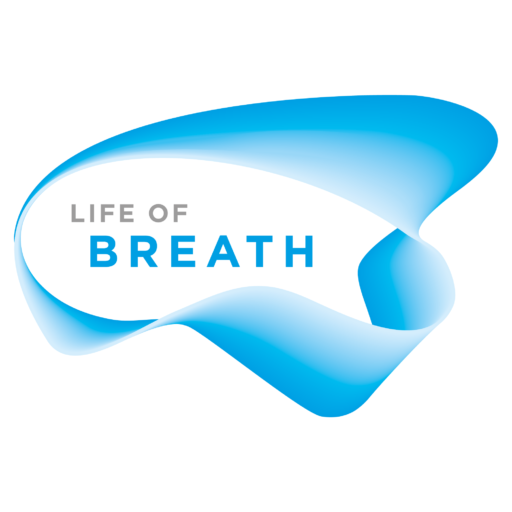A phenomenology of illness
Life of Breath PI Havi Carel writes:
The experience of illness is a universal and substantial part of human existence. Like death, illness raises important philosophical issues. But unlike death, illness, and in particular the experience of being ill, has received little philosophical attention. This may be because illness is often understood as a physiological process that falls within the domain of medical science, and is thus outside the purview of philosophy. In my new book, Phenomenology of Illness (OUP 2016), I claim that the experience of illness has been wrongly neglected by philosophers in general, philosophers of science and medicine in particular, and by biomedical theory and practice. This philosophical and biomedical neglect of the experience of illness stands in stark contrast to the intense interest in this experience from the general public and from ill people and those who care for and about them.
In the book I suggest that it is necessary to supplement a naturalistic account of disease (I use the term ‘disease’ to denote physiological dysfunction) with a philosophical study of the experience of illness (how the disease is experienced) itself. This approach aims to study illness without viewing it exclusively as a subject of scientific investigation. It is not enough to see illness as an entity in the world that can be studied with the tools of science. In order to fully understand illness, it also has to be studied as a lived experience. To study the lived experience of illness is necessarily to explore its existential, ethical and social dimensions.
Hence I use a phenomenological approach for this study. Phenomenology – the philosophical method for studying lived experience – is not a variant form of scientific enquiry, but a method for examining pre-reflective, subjective and pre-theorised human experience as it is lived prior to its theorisation by science.
The aim of the book is twofold: to contribute to the understanding of illness through the use of philosophy and to demonstrate the importance of illness for philosophy. This bilateral approach lies at the heart of the book. I argue that a philosophical analysis is essential to developing a full understanding of illness, and complements work in medical anthropology, sociology of health and illness, health psychology, and qualitative health research.
Illness is a breathtakingly intense experience. It unsettles, and sometimes shatters, the most fundamental values and beliefs we hold. It is physically and emotionally draining. It can be physically and psychologically debilitating. Illness requires serious effort and continuous work to adapt practically to its limitations and to adjust psychologically to the pain, restricted horizons and frustration it brings. It forces the ill person and those around her to confront mortality in its most direct and bare manifestation. In all of these ways illness requires labour, attention, and a conscious and sustained effort.
But, as I argue in the book, illness is also existentially and intellectually demanding – and potentially rewarding – in ways hitherto unexplored. Illness can challenge our most fundamental beliefs, expectations and values and this accords it a distinct and important philosophical role. For example, the belief that a longer life is better than a shorter life is one such belief that comes under intense scrutiny when one is given a poor prognosis. Perhaps a shorter but more meaningful life is equally valuable, or even better than a longer life? In what ways does the value of life depend on its duration? These are some of the questions that may arise in response to illness.
Many ill people report a change in their perception of space and time. Places that were ‘just round the corner’, things that were ‘easy to carry’, and events (like death) that were vaguely conceived as ‘a long way off’ change their function and as a result also their meaning. For example, stairs that once led somewhere are now merely an obstacle for the paraplegic. Not only the contents of experience but also its structure and normative fit change in illness; we need to study these changes carefully.
In the most general terms we can say that illness changes how the ill person experiences the world and how she inhabits it. Such a dramatic and overarching change to experience deserves, or often simply demands, philosophical attention. A common reaction to a diagnosis of illness is a sense of meaninglessness and despair. Such an event challenges the ill person to reflect on her life and search for ways of regaining its meaningfulness. As such, illness is one path leading to philosophical reflection by calling us to question our understanding of the world, fundamental beliefs, habits, and expectations. Illness often distances the ill person from her previous life and constitutes a violent invitation – or, again, demand – to philosophise.
What kind of invitation to philosophise illness is, and what philosophical work can arise from this invitation, are two major concerns of the book, which have so far garnered little attention from philosophers. I offer an account of the philosophical productiveness of illness, but also of its violent mode. Of course the invitation to reflect on one’s life issued by illness can be met with resistance. Many people, both healthy and ill, deny, flee or otherwise resist thinking about vulnerability, morbidity and mortality. This reaction stems from the difficult nature of illness: unwelcome and demanding, it extends its bony fingers to grab, restrict, and sometimes destroy all that we hold dear: freedom, motility, agency, action, possibility, and the openness of the future. Perhaps philosophers’ neglect of illness is one sort of such denial, or an attempted falsification (in the Nietzschean sense) of the realities of life through wilful, although often unconscious, blindness to its uglier faces.
Contra this tendency to resist thinking about illness, I propose that illness is a philosophical tool. Through its pathologising effect illness distances the ill person from taken for granted routines and habits and thus reveals aspects of human existence that normally go unnoticed. For example, I claim that we have a tacit sense of bodily certainty that only comes to our attention when it is disrupted and replaced by bodily doubt. As such, illness is a useful philosophical tool for shedding light on the structure and meaning of human existence and experience.
What we have, therefore, is a bilateral flow from philosophy to illness and back. Philosophy, and in particular phenomenology, can be used to understand the experience of illness, and illness can be used to shed new light on central areas of philosophy such as ethics, political philosophy, and the study of human experience. The idea that the illumination is mutual is a central theme of the book.
The central case study the book examines is the symptom of breathlessness. I analyse respiratory illness and breathlessness, using the phenomenological account developed in the book. The experience of breathlessness is acutely distressing, and yet it is also invisible and difficult to both measure and describe. It is invisible because respiratory patients are often housebound or have limited mobility. This makes them less visible. But it is also invisible because the experience of breathlessness can seem innocuous to the external observer. However, the experience of breathlessness is pervasive, acute, and ill-understood. The book uses the phenomenological tools developed in it to outline a phenomenology of breathlessness and to explore the discrepancy between the subjective experience of breathlessness and the objective measurements of lung function.
Breathlessness is not only a symptom; it is a constant horizon that frames the experience of a respiratory patient. It is a limiting factor, and a condition of possibility for any action or experience the ill person may have. It also has a rich symbolic and psychological meaning. Our first and last breath mark the beginning and end of life. A baby’s first breath, noted by her cry, is a symbolic moment of joining humanity, with a voice propelled outwards by her tiny lungs. It is the breath of life. Here I am, she says. Hear me. Witness my efforts to exist and communicate. The last breath is rasping, irregular, forced. Or it can be barely perceptible. It says: I am running out of breath which is a running out of life. And in between the first inhalation and last exhalation lies all of life, continuously rising and falling, inhaling the exterior and exhaling the unneeded, taking in and letting out. This life can be lived within the horizon of normal breathing and breathlessness, but is often lived in pathological breathlessness.
The richness of the experience of breathlessness and the way in which it differs from normal breathing are currently studied in detail by the Life of Breath team. What is immediately striking is how intimately entwined life and breath are, which makes breathing a juncture of the physiological, psychological, existential, spiritual and cultural. Thus breathlessness cannot be studied solely as a symptom. In the next post I will offer a phenomenology of breathlessness that takes it to be a transformative experience, much broader and more significant than a medical symptom.
[ABTM id=1594]




1 Comments
Pingback: A phenomenology of illness, part 2 – Life of Breath